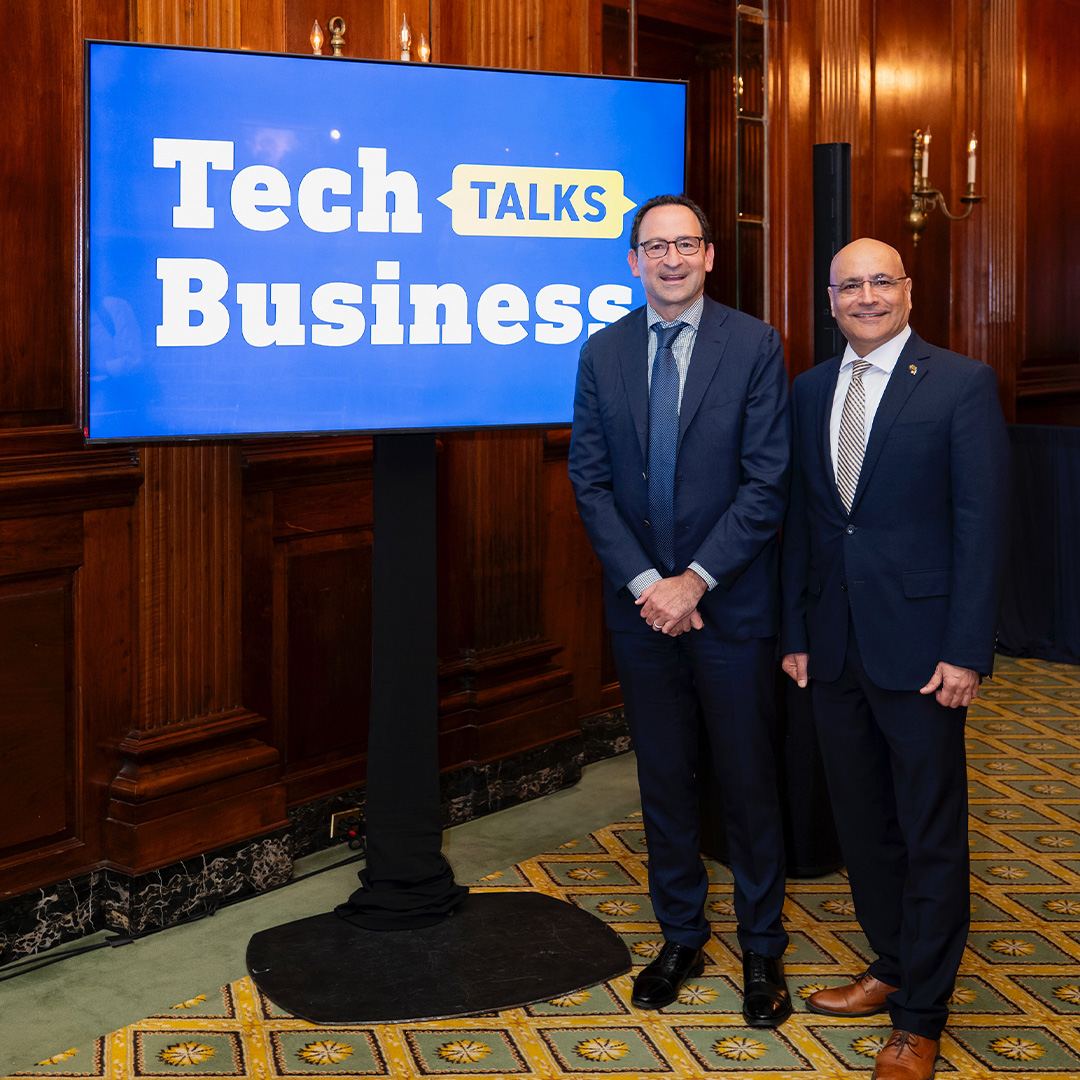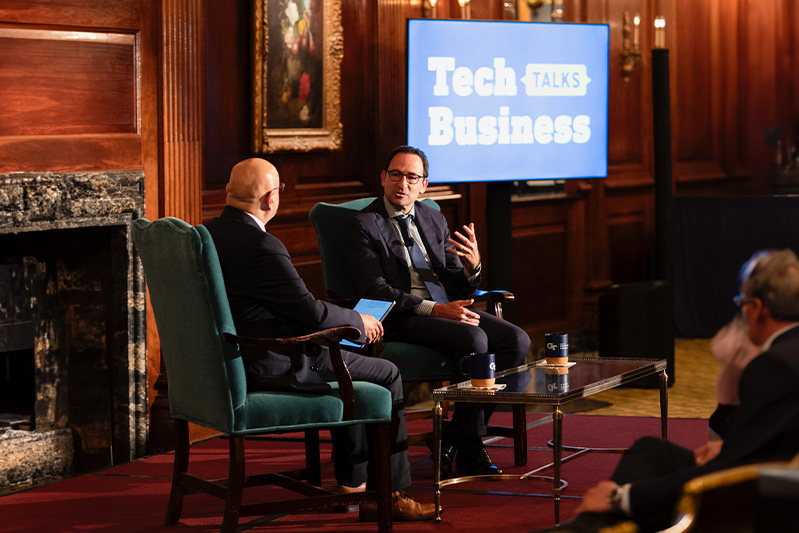Blackstone President and COO Jon Gray joined Dean Anuj Mehrotra in New York City for a Tech Talk Business event that explored the evolving landscape of investment strategy, technological disruption, and the importance of resilience and optimism in uncertain times. The special session was supported by Scheller benefactors Mike Messner and Mac Jordan.
Philanthropy at Work
The conversation opened with a powerful reflection on Gray’s philanthropy. Alongside his wife, Mindy Gray, they have concentrated their efforts for long-term, inclusive impact.
“My wife and I grew up never expecting to have the kind of life we have today. Twelve to fifteen years ago we decided to give back in an organized way. We focused on two areas. The first was giving low-income kids in New York City greater access to education, opportunity, and healthcare. We worked to help kids from under privileged backgrounds gain access to health education to become doctors. The second thing was funding research about the BRCA mutation, which causes a high incident of breast and ovarian cancer in women.”
Investing Through Turbulence
Gray admitted that investing is difficult. By its nature, things are going to go wrong. And sometimes, what may seem wrong in the moment, may end up being profitable in the long term. Under the direction of Gray, Blackstone acquired Hilton Worldwide in July 2007 for $26 billion in a leveraged buyout, just before the global financial crisis hit. Within a year, Lehman Brothers declared bankruptcy, marking the truly dire nature of the crisis worldwide.
Gray admitted that many were writing the obituary for his career in that moment. Stubbornly optimistic, he felt that things couldn’t get any worse than they were at that time. Six years later, Blackstone brought Hilton Worldwide public through an IPO, resulting in a $14 billion profit and the most successful real estate private equity deal of all time.
Resilience and balance in business and personal facets of life are essential to weathering economic storms. His family provided refuge. So did confidence in his bet that Hilton was fundamentally a great business. “We had to stay calm, stay positive, and never give up. We believed that we were going to get through. Ultimately, we bought a great business in a great neighborhood with long term tailwinds.”
Real Estate, AI, and the Future of Urban Investment
The conversation shifted to the future of real estate, with Gray highlighting the persistent housing shortage in developed markets like New York City and San Francisco and the growing potential of investing in rental housing.
“There is a shortage of housing in most markets in the world that have become more pronounced since the financial crisis,” Gray said. “I would say owning rental housing is a good ‘neighborhood’ to invest in. It’s been hurt the last few years by the sharp rise in rates that I think will reverse itself. The economy is going to be driven by knowledge workers who like to be in these cities. People will come back.”
Mehrotra and Gray also discussed rapid technological advancement and the increasing demand for energy and power infrastructure.
“The biggest trend to keep our eyes on is what’s happening in technology,” Gray said. “We are at the very beginning of the use-case for large language models. In response, Blackstone has become the biggest investor in the world in data centers – the physical infrastructure powering AI, bots, and autonomous cars.”
Question and Answer
The evening concluded with a question and answer session, where current students, alumni, and industry experts asked Gray questions about balancing growth and risk, the impact of tax policy changes on private equity, and the ways AI adoption will continue to reshape the financial industry.
Financial institutions are biding their time when it comes to fully embracing AI models. Rightly so, in Gray’s opinion. “Large language models are brilliant with words but still catching up with numbers,” shared Gray. “The real challenge isn’t company resistance – it’s building applications that work. Once those emerge, adoption will accelerate, just like the shift to mobile. In every boardroom I’m in, we’re talking about AI – not as a question of if, but when.”
Watch the full event:

